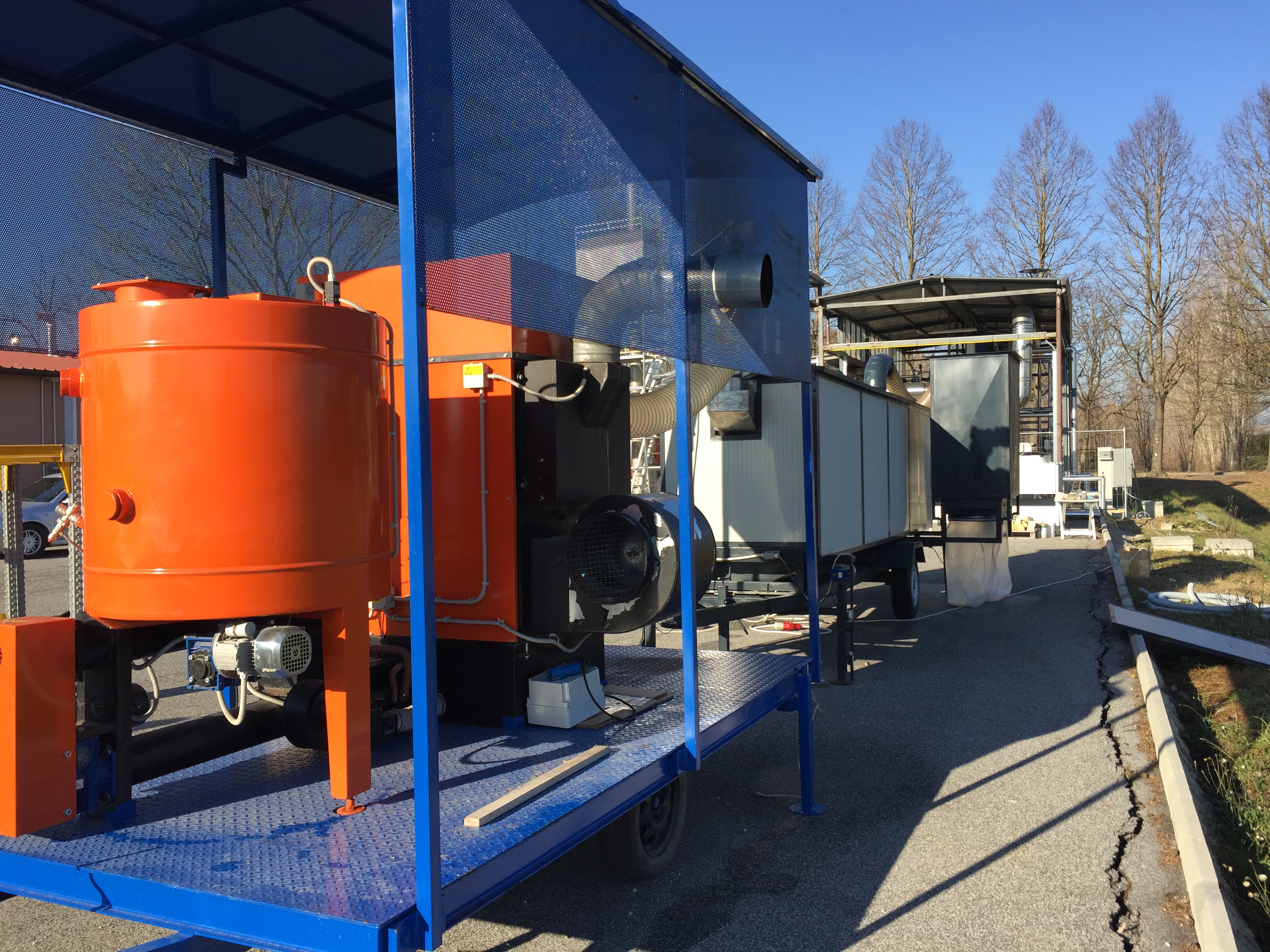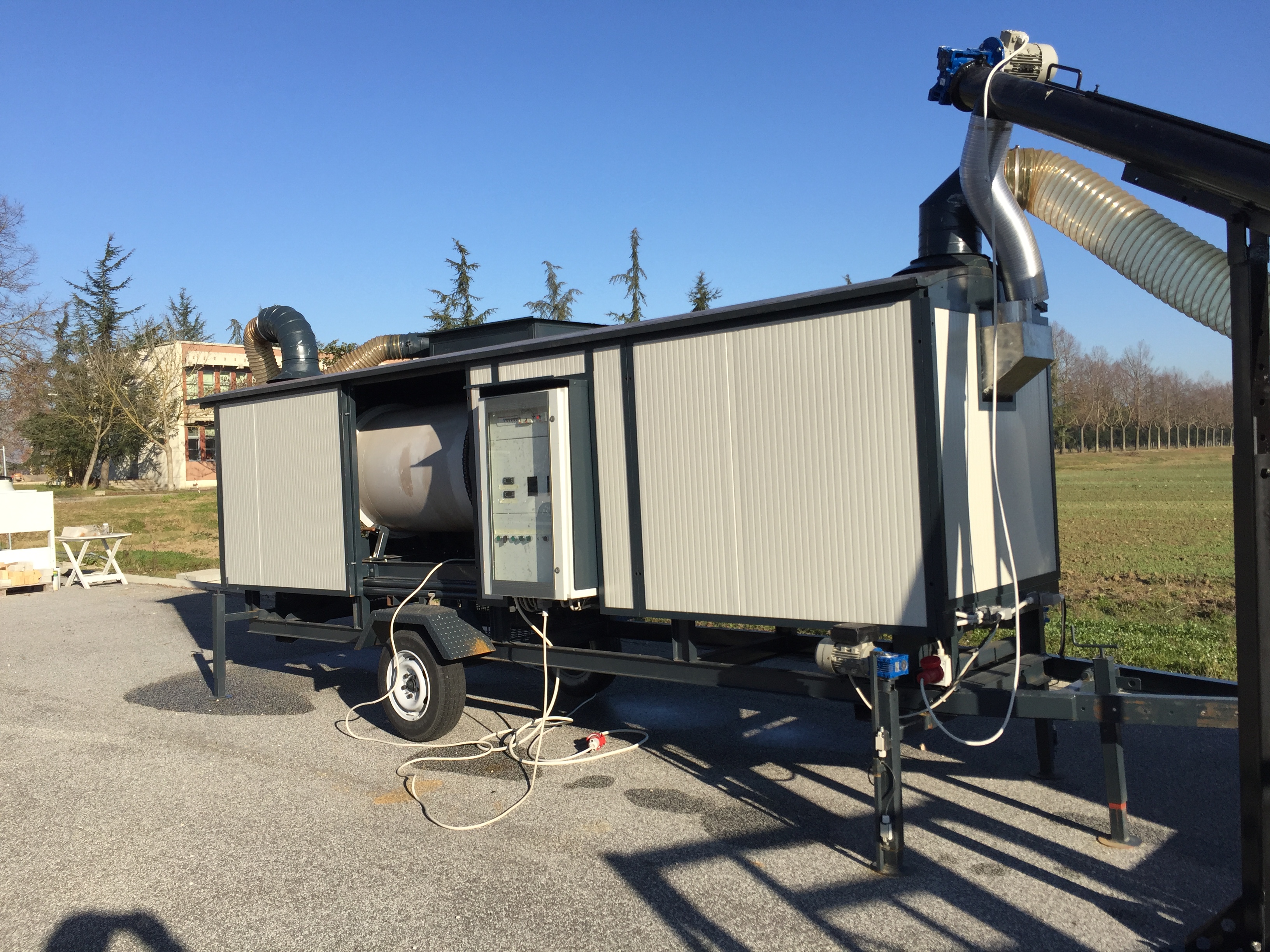
Abstract of the project
The production of renewable thermal and electrical energy from biomass and plant material in general represent a fundamental component of the strategic plan for 2020 defined by the Government. Among renewable sources, biomasses represent a very important item both in terms of potential and political objective (390.000 TJ against a potential for solar thermal and geothermal energy of approximately 75.000 TJ each). On the basis of the Position Paper presented by the Italian Government to identify the potential of renewable sources, a doubling of electricity production from biomass and above all a quadrupling of biomass for thermal use is foreseen. It is evident from these numbers that biomasses are destined to play a decisive role, especially on the thermal side, in achieving the objectives by 2020, contributing over half of the necessary increase in renewable production. Furthermore, it should be emphasized that the widespread use of biomass in heating systems in efficient boilers can take place at significantly lower costs for the State than the incentives necessary for the production of green electricity.

The project aims to demonstrate the possibility of using an innovative system for the conversion of plant-based agricultural waste into briquettes or pellets through the use of a mobile unit capable of traveling to the territory (small and medium-sized municipalities, agricultural and wooded areas) to operate the conversion of vegetable matrices into briquettes. In this way, the volume of biomass is considerably reduced, transforming it into fuel that is easy to transport, thus making agricultural residues usable, wood derived from cleaning the woods or pruning urban trees whose recovery otherwise would not have been economically justifiable. The project involves the development of all phases of design, development, construction of a prototype, the first field tests and subsequent marketing in some pilot areas for the relative combustion in dedicated boilers.
The project provides for the possibility of using the prototype developed in two different contexts:
• forest residues and waste found in the Madonie park in Sicily;
• pruning of olive trees, virgin pomace, urban trees in the Province of Lecce.
The use of biomass briquettes produced in the boilers of the urban areas adjacent to the territory will make it possible to replace fossil sources currently used with a renewable source produced by the recovery of vegetable waste. The aim of the research is therefore to favor the achievement of the Italian objectives by 2020 at the lowest possible cost. The barriers that today prevent the valorisation of residual and waste biomass are on the one hand the laws that assimilate many of the secondary raw materials to waste, on the other hand the absence of significant estates and therefore the fragmentation of properties and therefore the difficulty of organizing in the supply chain in an appropriate way. The small size of agricultural plots often means that processing residues are disposed of in the field (over time stimulating anaerobic decomposition with consequent production of methane) or burned on the spot.
In this case, the logistical and transport costs are so heavy that they do not make harvesting interesting from an economic point of view: the non-compact and humid raw material entails an energy, environmental and economic cost in terms of € / ton useful / km many cases out of market the product. Italian woods have been growing for years in terms of surface area and inventory quantity, going from 8.675.100 hectares in the inventory in 1985 to about 10.528.080 in 2004 with an overall increase of about 21,3%. However, they would need cultural care, including periodic cutting. Unfortunately, the soil layout is mainly difficult. The traditional activities of the mountains have disappeared and there has been no technological or entrepreneurial development, as in other countries where the maintenance of the woods has always been guaranteed by specific laws.
Based on the Position Paper presented by the Italian Government to identify the potential of renewable sources in 2020, a doubling is expected for electricity production from biomass and above all a quadrupling of biomass for thermal use. It is evident from these numbers that biomasses are destined to play a decisive role, especially on the thermal side, in achieving the objectives of this decade, contributing over half of the necessary increase in renewable production. Moreover, it should be emphasized that the strong diffusion of the use of biomass in heating systems in efficient boilers can take place with costs for the State that are decidedly lower than the incentives necessary for the production of green electricity.
The development of mobile briquetting machines will therefore make it possible to transform into products ready for combustion that vast area of agricultural or forestry by-products that are currently not economically usable and which, on the contrary, have so far been a problem. Furthermore, once the mobile drying and pelletizing prototype has been developed, this system can be industrialized and thus give a boost to the Italian green economy sector.
• Knowledge of the real potential of secondary residual biomass and chemical-physical characterization
• Obtaining quality biomass pellets
• Optimization of energy enhancement
• Exalto
• University of Palermo
Alessandro Bencini
Staff
Ettore Guerriero
Staff
Valerio Paolini
